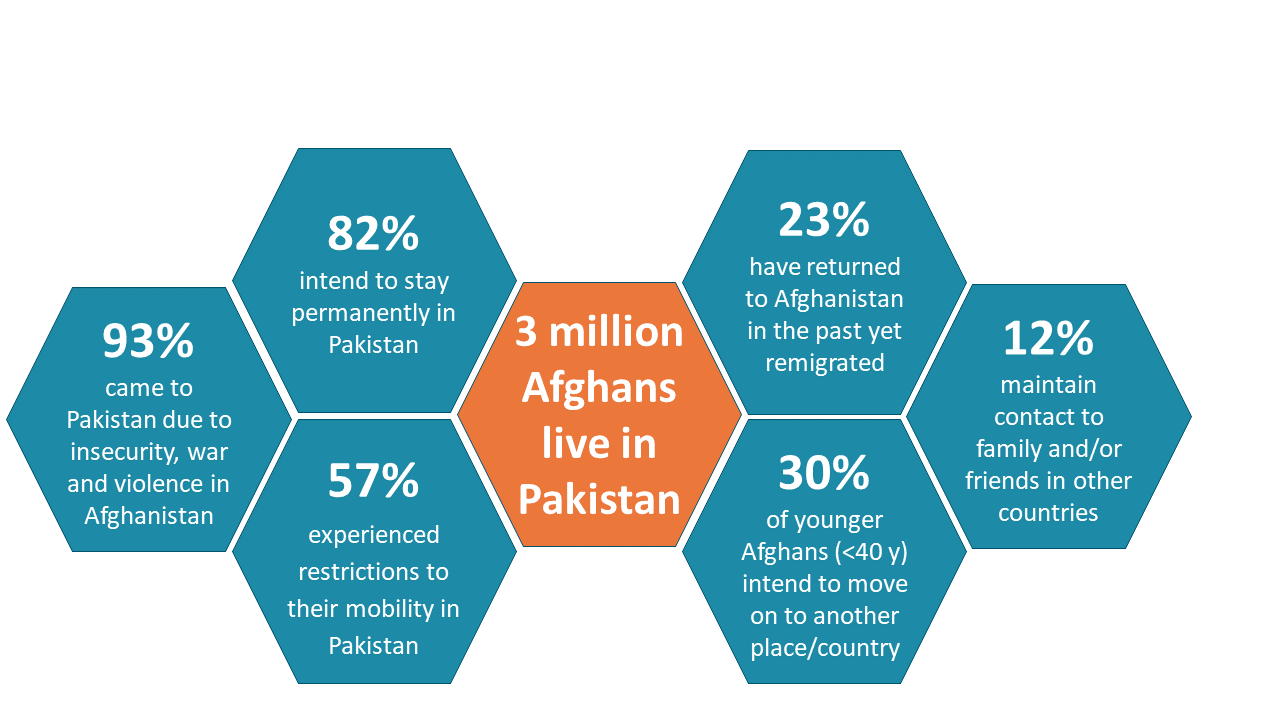TRAFIG practice note no. 7
Now more than ever
Afghans in Pakistan need more mobility and durable solutions to stay
The Taliban’s recent seizure of Kabul and overall control of the country has once again led many Afghans to flee their country. With more than 2.67 million Afghans registered as refugees worldwide (as of 2020), and possibly more to come, Afghans are the second-largest refugee population after Syrians. Their displacement began more than 40 years ago, many of whom have taken refuge in Pakistan, which has 1.4 million Afghans registered with UNHCR as refugees (UNHCR, 2020) and more than 800,000 registered with the government of Pakistan. Close to one million Afghans remain undocumented in Pakistan.
Based on substantive empirical research with Afghan refugees and experts in Pakistan (see TRAFIG working paper no. 7), the authors argue that ending the protracted displacement of Afghans in Pakistan requires a change in Pakistani policies.
The Pakistani Government should:
- issue a national refugee law that provides future certainty for registered Afghans, or
- transform Pakistan's current protection system into a generous visa regulation system for Afghans
Whichever course of action is taken, the following outcomes are crucial:
- Afghans with protection needs should have the option to undergo UNHCR-administered Refugee Status Determination (RSD) procedures and be able to apply for asylum in Pakistan.
- All Afghans should have the right to mobility, not only throughout Pakistan but also across the border to keep up relationships in Afghanistan and beyond.
- Afghans residing in Pakistan for more than 10 years and those who were born in Pakistan to Afghan parents should be eligible for Pakistani citizenship.

Authors: Elvan Isikozlu, Katja Mielke, Mudassar M. Javed
Cite as: Isikozlu, E. et al. (2021). Now more than ever: Afghans in Pakistan need more mobility and durable solutions to stay (TRAFIG practice note 7). Bonn: BICC. DOI: 10.5281/zenodo.5845834
You can download TRAFIG practice note no. 7 here.
This practice note is based on: Mielke, K. M. et al. (2021). Figurations of Displacement in and beyond Pakistan: Empirical findings and reflections on protracted displacement and translocal connections of Afghans (TRAFIG working paper 7). Bonn: BICC. DOI: 10.5281/zenodo.5841876.